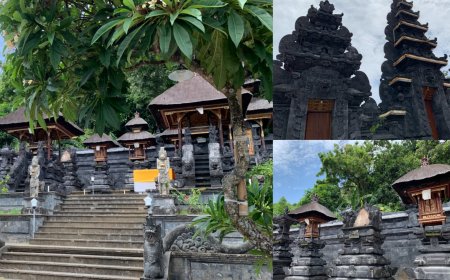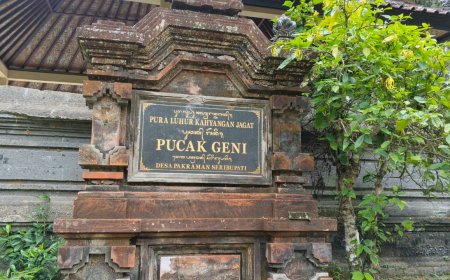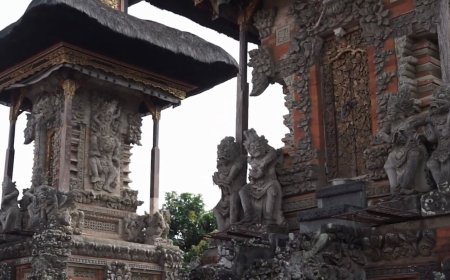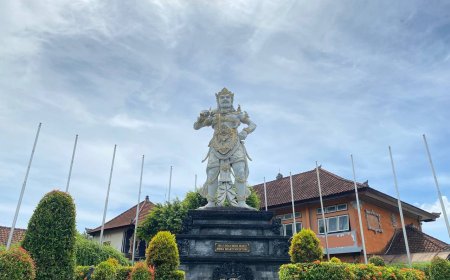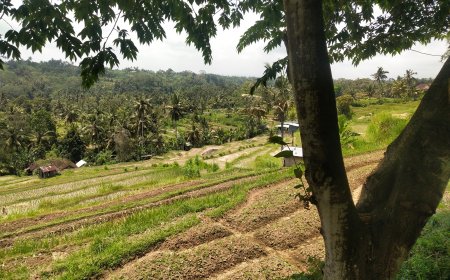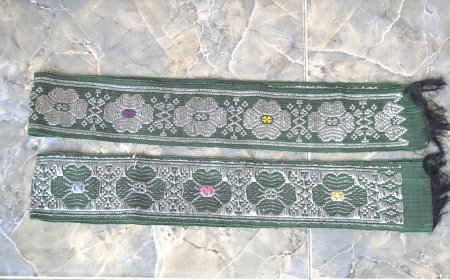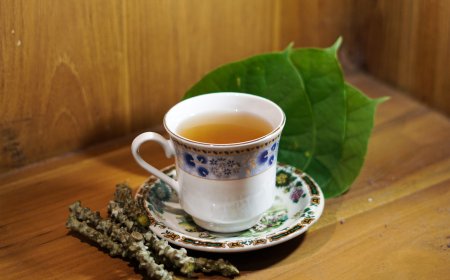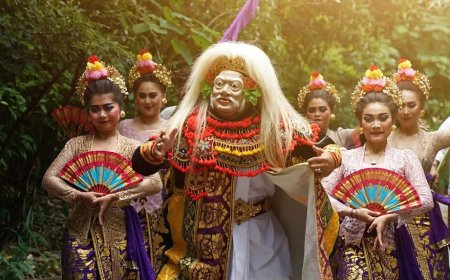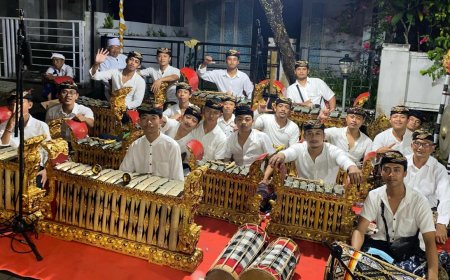From Ubud to the World: Preserving the Balinese Flute through Sanggar Suling Semeton Nika Manu
Amidst the vibrancy of Balinese arts, there exists a unique sanggar born from the passion of young individuals eager to learn the Balinese flute. That sanggar is Sanggar Suling Semeton Nika Manu, a community now widely recognized as a haven for the preservation of Bali's traditional arts.
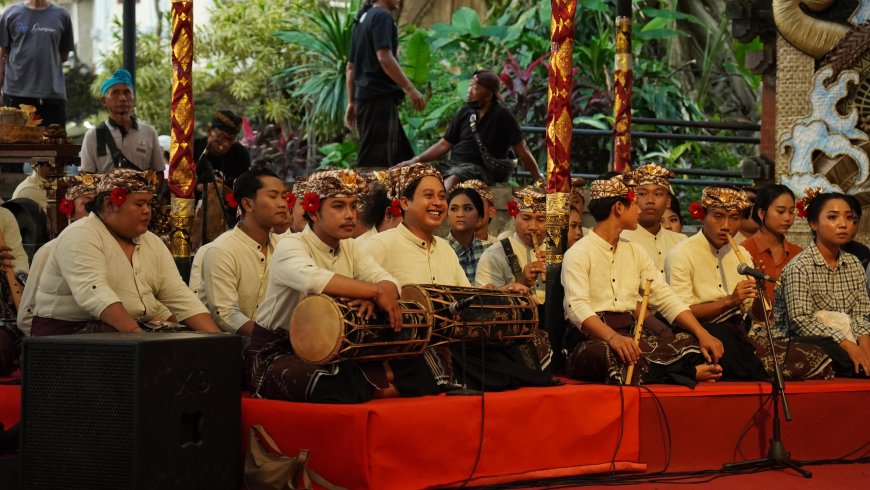
Around 2010, I Wayan Karta, affectionately known as Cover, began teaching Balinese flute (suling Bali) to the young people in his community. Starting with just nine students, a desire emerged to form an arts group. Although small in number, their spirit was enormous. With simple flutes in hand, they took their first steps by ngayah offering performances as a form of devotion in various temples, including Pura Besakih during the full moon.
From that journey, the name "Nika Manu" was born in 2012. The word Nika comes from "Nini" and "Kaki", symbols of male and female ancestors, while Manu means "manah" (thought) and also refers to man, a creation of God. This philosophy reflects the idea that humans are born of their ancestors, carrying the responsibility to preserve divine knowledge particularly through the art of the Balinese flute.
Sanggar Practice Activities (Source: Personal Collection)
The sanggar grew and flourished in Banjar Pengosekan, Mas, Ubud, Gianyar. From a modest space, the sound of suling, gamelan, and the laughter of children practicing could be heard every day. The atmosphere was filled with warmth, reflecting the strong bond between teacher, students, and the surrounding community. This place became not only a center of activity but also a home for the younger generation eager to explore traditional arts.
In 2017, the sanggar reached a significant milestone when it received official recognition from the Ministry of the Republic of Indonesia. From that moment, its activities expanded beyond the suling, branching out into performances of tari arja and Balinese gamelan.
They even gave birth to new creations, such as Sanghyang Sri Manu, a unique pragmentari in which all the accompanying music was performed solely with suling of various sizes. They also developed Tari Gambuh Nika Manu, considered an innovative form of gambuh, while simultaneously nurturing the younger generation to become classical arja dancers.
Achievements of Sanggar Nika Manu (Source: Sanggar Nika Manu)
This sanggar is not driven solely by I Wayan Karta and his first students, but also by the surrounding community who provide full support. Local youths join in, their parents lend a hand, and the villagers help preserve the spirit of togetherness.
Since 2014, the female students of the sanggar have even been entrusted to represent Gianyar Regency in the Women’s Gong Kebyar Parade at the Bali Arts Festival (PKB). Year after year, they continue to appear consistently at the PKB. Some of its members have also achieved remarkable success, such as winning 1st and 2nd place in a Balinese flute competition held by the Gianyar Police.
In addition, I Wayan Karta is often invited as a guest lecturer at campuses such as the Bali State Polytechnic, and is regularly trusted to serve as a judge in flute competitions. Even during the pandemic, the sanggar continued to create and perform, presenting a virtual show at the German Embassy.
The Journey of Sanggar Nika Manu (Source: Personal Collection)
Behind every step taken by Sanggar Suling Semeton Nika Manu lies an inspiring journey. It all began with a simple intention to teach Balinese flute to children. Unexpectedly, it was the children's enthusiasm that sparked the idea to form a sanggar.
From their humble beginnings, the sanggar has always upheld the powerful motto "We must be like linuh able to live independently, but capable of shaking the world."
This motto has become a source of encouragement for all members to remain consistent in their creative endeavors and to preserve Balinese culture, regardless of the challenges they face.
Today, Sanggar Suling Semeton Nika Manu continues to be active and growing. It is more than just an arts community it is a large family rooted in shared values, mutual support, and a deep love for culture.
Every August 14, the sanggar celebrates its anniversary, a moment of reflection and gratitude that honors the group's origin from a few simple flutes and the enthusiasm of children, grew a meaningful cultural institution that contributes greatly to the preservation of Balinese arts.


